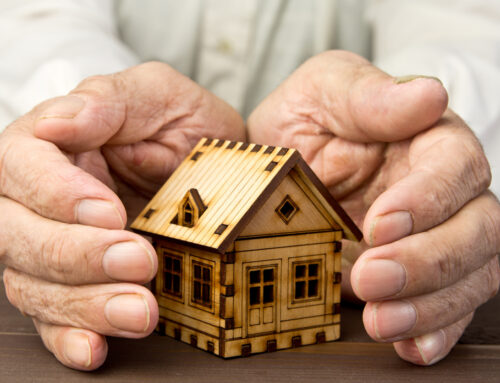These six tips can create a happier and healthier home
We live in a world of stuff. Everywhere we go, we’re surrounded by it. Living minimally is certainly not the strong suit of most Americans. And this is perhaps most evident in older generations.
The longer we live, the more stuff we accumulate, of course. We’re constantly acquiring things and holding on to them, even when they’re past the point of use. For some people, clutter transforms into a more serious issue; studies show that hoarding is a growing problem.
But even if an older person isn’t a hoarder, too much stuff can still cause problems. Clutter is one of the leading causes of falls in a home. It may also lead to isolation, as someone might be less likely to allow people into their home because of embarrassment. And when there is a surplus of outdated food, this presents a new set of issues.
How can you help?
If you’ve noticed clutter starting to pile up in the home of an elderly friend or family member, you shouldn’t ignore it. While you don’t want to be rude or intrusive, you should try to do what you can to make it less of a problem. Here are some good steps to follow:
Talk about it
It’s quite possible that your loved one doesn’t recognize that anything is wrong. They may have just grown so accustomed to their stuff that they don’t see it as clutter. Have a talk so you can get their point of view.
Start slowly
If there is a lot to go through, don’t try to tackle it all as quickly as possible. Start with a room or maybe just a closet. Speed isn’t important; just the fact that the de-cluttering process has begun is the most significant step.
Be sensitive
What may look like trash or old items to you could have special importance to their owner. Don’t be in a hurry to just toss things; take the time to really look at items carefully. Often, people hold on to things for the memories they bring back, and figuring this out might actually wind up as a great learning experience for you.
Get organized
When you start sorting items, you should look to put them into four main categories: trash or recycle, donate, give to friends or family, or keep. Once this is done and you notice the “keep” pile is still large, don’t be afraid to go through it again. A second glance may help the person decide that they may not actually need some of that stuff.
Bring in some backup
If you’re not sure you can take care of the clutter on your own, you might want to get some other family members involved. This can accomplish a few things. First, a little extra pressure may convince your loved one that their clutter is a problem. Plus, if they are reluctant to throw things away, different members of the family can take some items, which will clear space and perhaps pass on heirlooms or personal treasures. Finally, more bodies on hand makes getting rid of the clutter easier and faster.
Hire some help
If you think you have a hoarder on your hands or just don’t believe that once the clutter’s gone it will stay that way, it could be time to hire a professional. A home healthcare aide is an excellent way to provide companionship for an older loved one and make sure they don’t fall back into bad habits. An aide can be especially beneficial if you don’t live close to your family member.
Want to learn what a home healthcare worker can do for you? Get in touch with FirstLantic. Since 2000, we have been providing exceptional service to seniors in Broward, Palm Beach, St. Lucie, Indian River, and Martin Counties. Call us at 877-618-3624 or just fill out our online contact form.
Written by Jack Maloney
 AVAILABLE 24 HOURS A DAY/7 DAYS A WEEK
AVAILABLE 24 HOURS A DAY/7 DAYS A WEEK Careers
Careers







